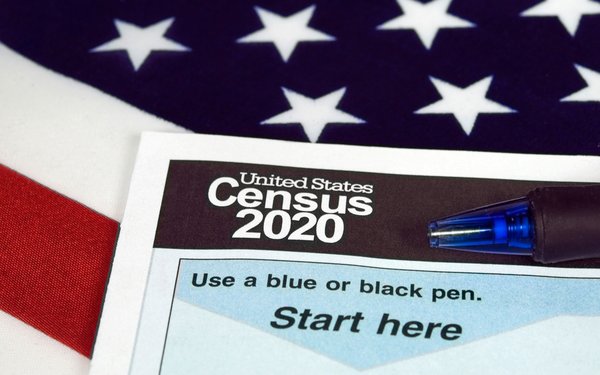Trump Drops Effort To Include Citizenship Question On Census
- by Wendy Davis @wendyndavis, July 11, 2019

President Trump on Thursday dropped his attempt to include a controversial question about citizenship in the 2020 census.
Instead, he has ordered federal agencies to share information about people's citizenship with the Commerce Department.
The move came nearly two weeks after the Supreme Court temporarily blocked the government from asking people about citizenship, ruling that the Commerce Department hadn't adequately justified the question's inclusion.
Commerce Secretary Wilbur Ross had said the question was designed to enforce the Voting Rights Act, but the Supreme Court found that explanation pretextual.
The Supreme Court left open the possibility of revisiting the question, but time constraints appeared to make that impractical. The census must begin on April 1, 2020, and government lawyers repeatedly said the questions would have to be finalized by July 1 of this year in order to meet that deadline.
Shortly after the Supreme Court's ruling, lawyers for the Department of Justice said the census was being printed without a question about citizenship. But Trump publicly contradicted those lawyers on Twitter.
“The News Reports about the Department of Commerce dropping its quest to put the Citizenship Question on the Census is incorrect or, to state it differently, FAKE!,” he tweeted on July 3. “We are absolutely moving forward, as we must, because of the importance of the answer to this question.”
On Thursday, Trump reversed course and said the administration was “pursuing a new option” to discover how many residents of the country are citizens.
He issued an executive order requiring all agencies to immediately furnish all legally accessible records in their possession to the Commerce Department. Trump said that order “eliminates long-standing obstacles to data sharing.”
Last year, three different federal district court judges issued orders prohibiting the Commerce Department from including a citizenship question in the census.
The major advertising industry groups opposed the question, as did Nielsen, ride-sharing company Uber, online glasses seller Warby Parker and the Los Angeles Chamber of Commerce.
The CEOs of the American Association of Advertising Agencies, American Advertising Federation, Association of National Advertisers, and Advertising Research Foundation argued that adding the question would depress response rates -- which would harm businesses that rely on census data for marketing and product development.
Nielsen argued in court papers that it uses census data in its media measurement techniques. “The addition of a question to the census that will reduce the census’s accuracy will have a lasting and negative impact on the operations of the largest American consumer product manufacturers, retailers, media, and marketing businesses,” the company wrote in a friend-of-the-court brief filed with the Supreme Court earlier this year.


